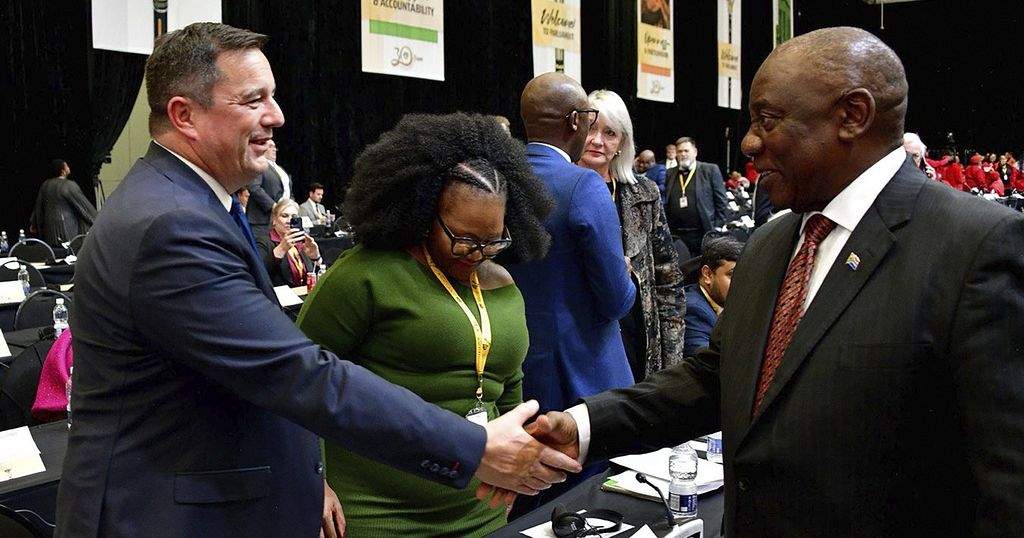South Africa’s New Era of Political Unity Begins
South African President Cyril Ramaphosa will officially launch his 11-party coalition government on Thursday, marking a significant shift in the country’s political landscape. The unprecedented coalition government was formed after the African National Congress (ANC) lost its parliamentary majority in the May 29 election.
In his speech, Ramaphosa is expected to outline the government’s priorities, which have become clear following the ANC’s worst election result in 30 years of democracy. The party’s loss was driven by voter anger over high levels of unemployment, inequality, and the failing state of basic public services.
The coalition government is a result of the biggest shift in South African politics since the end of apartheid in 1994. The ANC, which has dominated the country’s politics for decades, won just 40% of the vote, with no party securing a majority. The main opposition, the Democratic Alliance, is also part of the coalition.
Ramaphosa will face a new opposition on Thursday, led by former President Jacob Zuma, who was forced to resign in 2018 due to corruption allegations. Zuma’s newly founded MK party surprisingly won the third-largest share of the vote in its first election and has been officially recognized as the official opposition.
Zuma’s MK party has become a significant political force overnight, thanks to his enduring popularity in certain parts of the country. However, he was disqualified from serving as a lawmaker for five years due to a conviction and short prison sentence for contempt of court.
With Zuma unable to sit in parliament, his party appointed former high court judge John Hlophe as its leader in the legislature. Hlophe was impeached by parliament and fired by Ramaphosa for trying to influence other judges in a case involving a corruption investigation into Zuma.
Ramaphosa’s coalition government faces a daunting challenge: reviving South Africa, which has some of the highest rates of unemployment, inequality, and violent crime in the world. Despite being the most industrialized economy on the African continent, the country’s socio-economic challenges are significant.
Ramaphosa and other leaders of the new coalition believe that this represents a new era of political unity and hope for the country of 62 million people. The coalition government’s success will depend on its ability to address the country’s deep-seated problems and deliver tangible improvements to the lives of South Africans.
Key Facts:
- Cyril Ramaphosa will officially launch his 11-party coalition government on Thursday.
- The coalition government was formed after the African National Congress (ANC) lost its parliamentary majority in the May 29 election.
- The ANC won just 40% of the vote, with no party securing a majority.
- Jacob Zuma’s newly founded MK party surprisingly won the third-largest share of the vote in its first election.
- Ramaphosa’s coalition government faces a daunting challenge: reviving South Africa, which has some of the highest rates of unemployment, inequality, and violent crime in the world.
